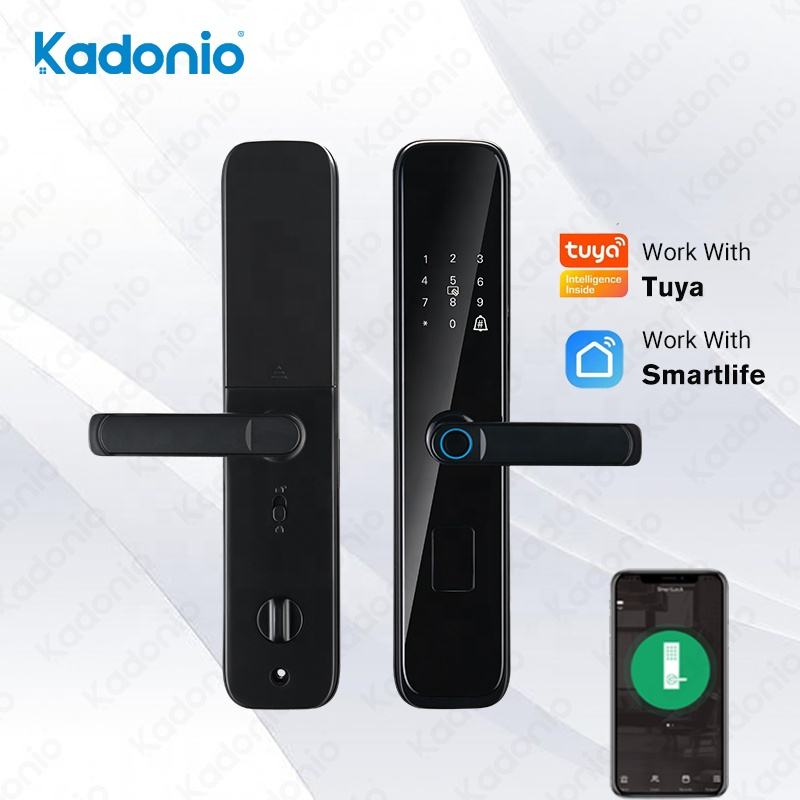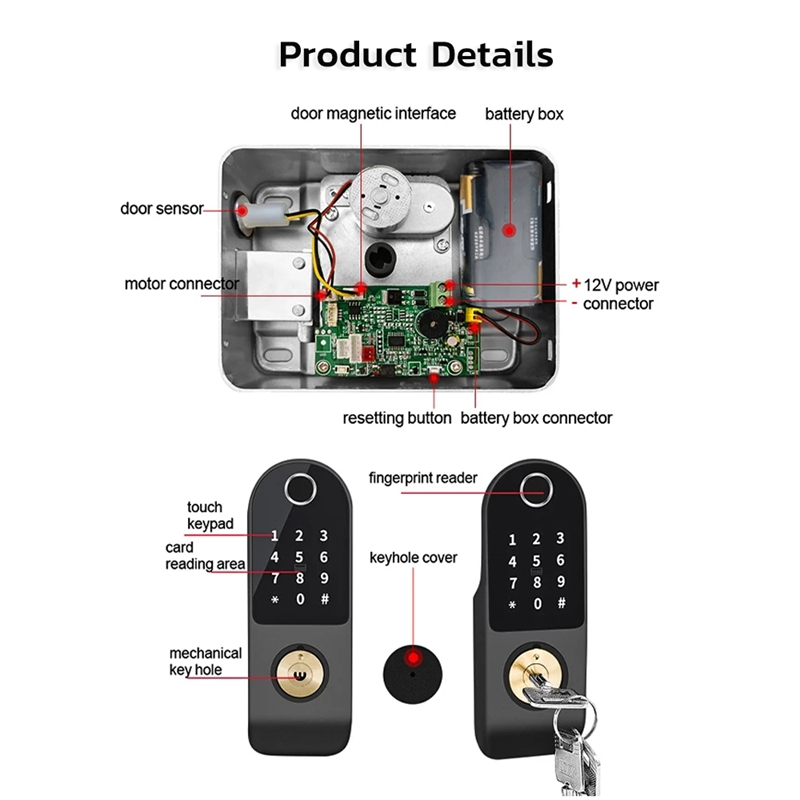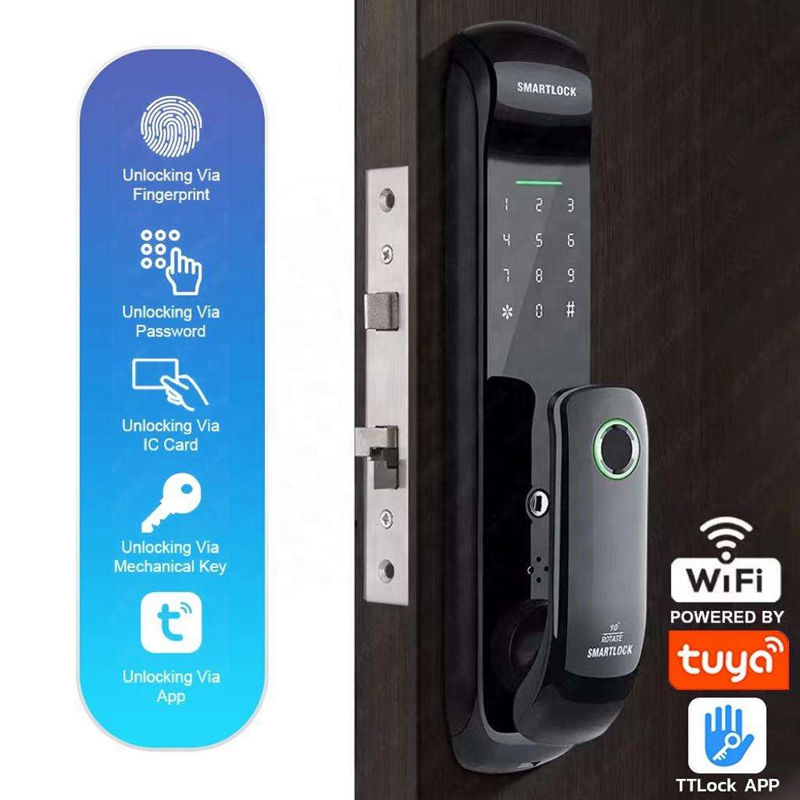Many users complain about the short lifespan of smart locks and how easily they break. However, it’s possible that these issues are caused by improper operation. In this article, we will outline five common misconceptions in the daily use of front door smart lock and provide easy techniques to extend their lifespan.
1. Don’t Overuse Lubricating Oil
Fingerprint smart door locks typically have a backup mechanical keyhole, but users rarely use the mechanical key for door unlocking due to its inconvenience. However, when the smart digital lock is left unused for a long time, the key may not smoothly insert or rotate within the lock cylinder.
At such times, users often think of applying lubricating oil, but this is actually a mistake. Oil tends to attract dust, and after applying oil, the lock cylinder can accumulate dust, resulting in the formation of an oily residue. This, in turn, makes the door lock more prone to malfunctions.
The correct approach is to apply a small amount of graphite powder or pencil lead into the keyhole to ensure smooth key operation.
2. Avoid DIY Lock Disassembly to Prevent Mishaps
DIY enthusiasts often attempt to disassemble smartphones, computers, and even security door locks for homes. However, we consider this a mistake because the failure rate is as high as 90%!
It is strongly advised not to dismantle the lock unless you possess the necessary expertise. Fingerprint smart locks, in particular, have more complex internal structures compared to traditional locks, containing various high-tech electronic components. If you are unfamiliar with the internals, it is best to avoid disassembly.
If you encounter any issues, it is recommended to consult the manufacturer. Generally, they have dedicated customer service personnel who can assist you. This also serves as a reminder to choose fingerprint door locks from manufacturers or authorized sellers with reliable after-sales services when making a purchase.
3. Handle with Care: Gentle Cleaning is Key
Fingerprint and password unlocking are the two most frequently used methods in our daily lives. However, their popularity means that the touch panel and our hands come into frequent direct contact. The oil secreted by sweat glands on our hands can easily leave stains on the panel, accelerating the aging of the fingerprint sensor and input panel, leading to recognition failures or unresponsive input.
To ensure a quick response for fingerprint and password unlocking, it is necessary to regularly clean the fingerprint sensor and input panel. When cleaning, use a dry, soft cloth for gentle wiping, strictly avoiding the use of damp or abrasive materials that could cause water damage or scratches.
4. Close the Door Gently: It Doesn’t Like Being Rough
Smart lock fully automatic products come with an automatic locking feature. However, some users tend to push the door directly against the door frame upon entering, resulting in an intimate embrace between the latch and the frame. Slamming the door with force can cause damage to the door lock.
The correct approach is to gently close the door by pulling it towards the frame and releasing it after the door and frame are properly aligned. Avoid forcefully slamming the door as it can reduce the lifespan of the lock.
5. Check the Batteries Regularly for Pleasant Surprises
Batteries are essential for the normal operation and security of smart locks. Users need to periodically check the batteries, especially during the summer or in high-temperature conditions. If the battery level is low or there is any sign of leakage, immediate replacement is necessary to prevent corrosive damage to the smart lock.
For optimal lifespan, it is recommended to choose alkaline batteries and avoid mixing new and old batteries. From a fire safety perspective, this is because lithium batteries are prone to explosion under high temperatures. In the event of a fire, the lock may become jammed, resulting in difficulties during rescue operations.
These are the common misconceptions in using smart home door locks. Instead of complaining about their short lifespan, let’s take care of them properly and ensure their longevity.
Post time: Jun-27-2023







